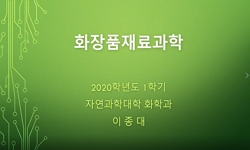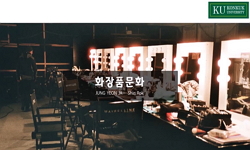Purpose: This study aimed to compare the anti-inflammatory and anti-angiogenic properties of bioconverted Picrasma quassioides extract (B-P.Q) with those of the non-bioconverted extract (P.Q) and peony root bark extract (BOT). Methods: The research ut...
http://chineseinput.net/에서 pinyin(병음)방식으로 중국어를 변환할 수 있습니다.
변환된 중국어를 복사하여 사용하시면 됩니다.
- 中文 을 입력하시려면 zhongwen을 입력하시고 space를누르시면됩니다.
- 北京 을 입력하시려면 beijing을 입력하시고 space를 누르시면 됩니다.

Anti-inflammatory and Anti-angiogenic Effects of Bioconverted Picrasma quassioides Extract: A Comparative Study on NF-κB Signaling Pathway Inhibition and Angiogenesis Suppression
한글로보기https://www.riss.kr/link?id=A109262785
- 저자
- 발행기관
- 학술지명
- 권호사항
-
발행연도
2024
-
작성언어
English
-
주제어
Cosmetics ; Bioconversion ; Picrasma quassioides ; NF-κB ; CAM assays ; 화장품 ; 생물전환 ; 소태나무 ; NF-κB ; CAM 분석
-
등재정보
KCI등재
-
자료형태
학술저널
-
수록면
447-461(15쪽)
- 제공처
-
0
상세조회 -
0
다운로드
부가정보
다국어 초록 (Multilingual Abstract)
Purpose: This study aimed to compare the anti-inflammatory and anti-angiogenic properties of bioconverted Picrasma quassioides extract (B-P.Q) with those of the non-bioconverted extract (P.Q) and peony root bark extract (BOT). Methods: The research utilized several experimental techniques, including cell viability assays on NIH 3T3 fibroblasts, measurement of NF-κB-related signaling protein activation, chorioallantoic membrane (CAM) assays, tube formation assays, and cell migration inhibition assays using human umbilical vein endothelial cells (HUVECs). These methods were employed to evaluate cytotoxicity, anti-inflammatory effects, and anti-angiogenic properties of the extracts. Results: B-P.Q demonstrated no cytotoxicity at the tested concentrations and significantly inhibited the activation of NF-κB-related signaling proteins (p-p38, p-Akt-1, p-SAPK/JNK, p-MEK1/2, and p-IκB) compared to P.Q and BOT. In angiogenesis experiments, B-P.Q showed superior inhibition of new blood vessel formation in CAM assays, effectively suppressed tube formation, and significantly inhibited HUVEC migration compared to controls and P.Q. Conclusion: The study found that bioconverted Picrasma quassioides extract (B-P.Q) has strong anti-inflammatory and anti-angiogenic properties, consistently outperforming non-bioconverted P.Q and BOT in various experimental models. These results suggest that B-P.Q holds significant promise as a therapeutic agent for chronic inflammatory conditions, particularly those involving excessive angiogenesis. The research underscores the effectiveness of bioconversion in enhancing the bioactive properties of natural extracts and opens up new possibilities for developing treatments for inflammatory skin problems.
동일학술지(권/호) 다른 논문
-
주름뼈대그물말에 의한 RAW264.7 세포에서의 항염효과
- 한국피부과학연구원
- 심중현
- 2024
- KCI등재
-
- 한국피부과학연구원
- Yu Cao
- 2024
- KCI등재
-
고수 엑소좀의 Tyrosinase와 TRPs 발현 억제를 통한 피부 미백 증진 효과
- 한국피부과학연구원
- 박하영
- 2024
- KCI등재
-
뷰티서비스 종사자의 커뮤니케이션 유형과 재방문의도의 관계에서 라포의 매개효과 를 중심으로
- 한국피부과학연구원
- 박선주
- 2024
- KCI등재




 KCI
KCI eArticle
eArticle






